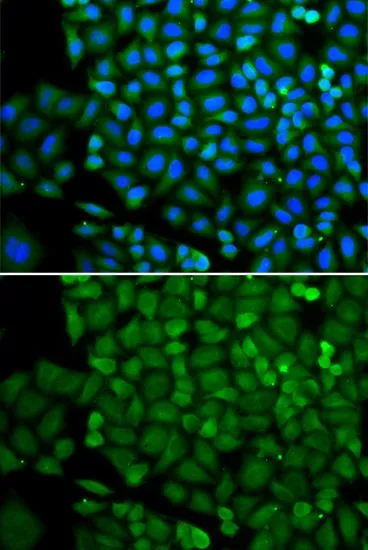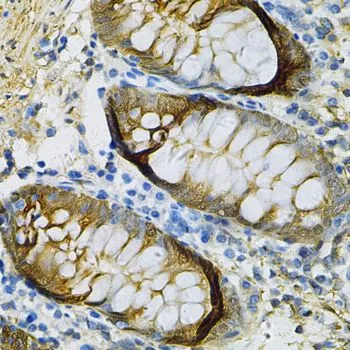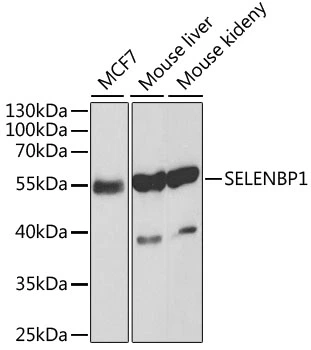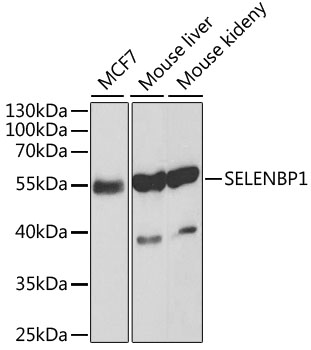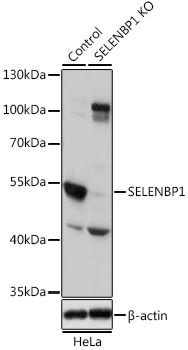
WB analysis of normal (control) and knockout (KO) HeLa cell lysate using GTX55788 SELENBP1 antibody. Dilution : 1:1000 Loading : 25μg per lane
SELENBP1 antibody
GTX55788
ApplicationsImmunoFluorescence, Western Blot, ImmunoCytoChemistry, ImmunoHistoChemistry, ImmunoHistoChemistry Paraffin
Product group Antibodies
ReactivityHuman, Mouse
TargetSELENBP1
Overview
- SupplierGeneTex
- Product NameSELENBP1 antibody
- Delivery Days Customer9
- Application Supplier NoteWB: 1:500 - 1:2000. ICC/IF: 1:50 - 1:200. IHC-P: 1:50 - 1:200. *Optimal dilutions/concentrations should be determined by the researcher.Not tested in other applications.
- ApplicationsImmunoFluorescence, Western Blot, ImmunoCytoChemistry, ImmunoHistoChemistry, ImmunoHistoChemistry Paraffin
- CertificationResearch Use Only
- ClonalityPolyclonal
- ConjugateUnconjugated
- Gene ID8991
- Target nameSELENBP1
- Target descriptionselenium binding protein 1
- Target synonymsEHMTO, HEL-S-134P, LPSB, MTO, SBP56, SP56, hSBP, methanethiol oxidase, 56 kDa selenium-binding protein, epididymis secretory sperm binding protein Li 134P
- HostRabbit
- IsotypeIgG
- Protein IDQ13228
- Protein NameMethanethiol oxidase
- Scientific DescriptionThis gene encodes a member of the selenium-binding protein family. Selenium is an essential nutrient that exhibits potent anticarcinogenic properties, and deficiency of selenium may cause certain neurologic diseases. The effects of selenium in preventing cancer and neurologic diseases may be mediated by selenium-binding proteins, and decreased expression of this gene may be associated with several types of cancer. The encoded protein may play a selenium-dependent role in ubiquitination/deubiquitination-mediated protein degradation. Alternatively spliced transcript variants encoding multiple isoforms have been observed for this gene. [provided by RefSeq, Apr 2012]
- ReactivityHuman, Mouse
- Storage Instruction-20°C or -80°C,2°C to 8°C
- UNSPSC41116161

